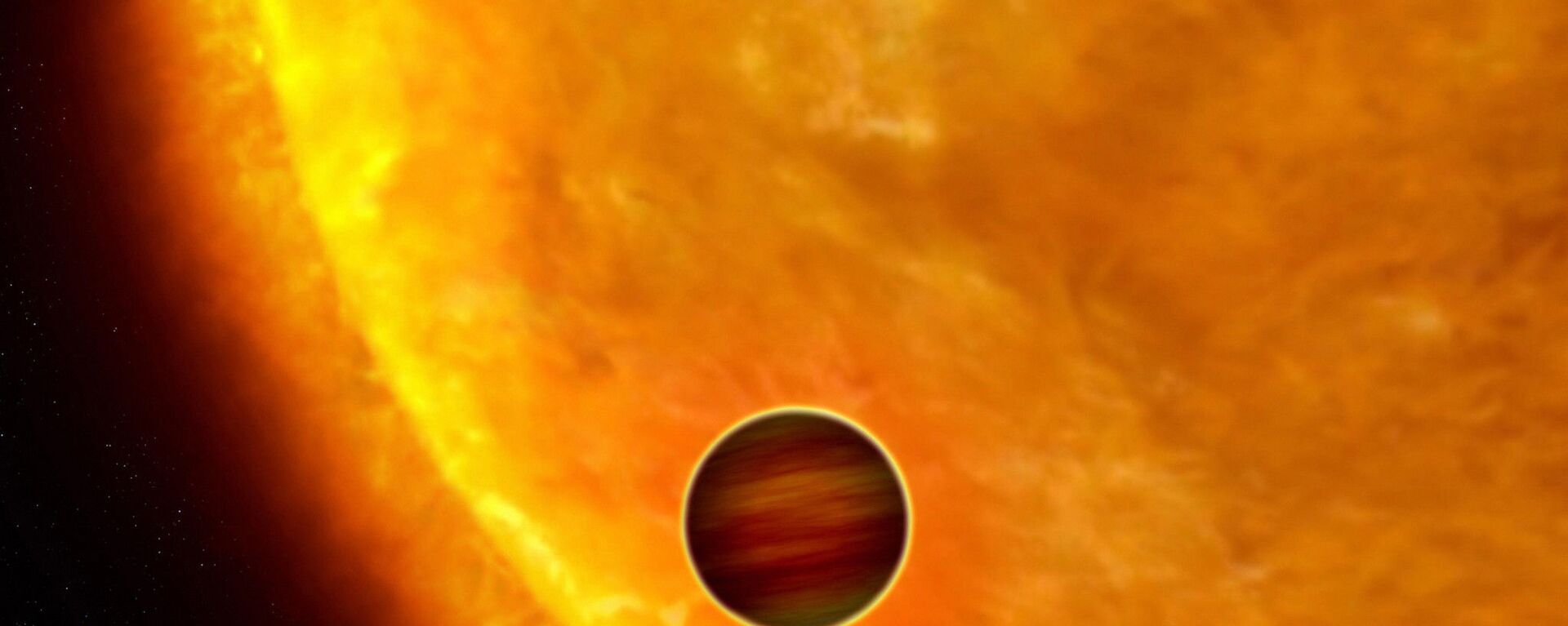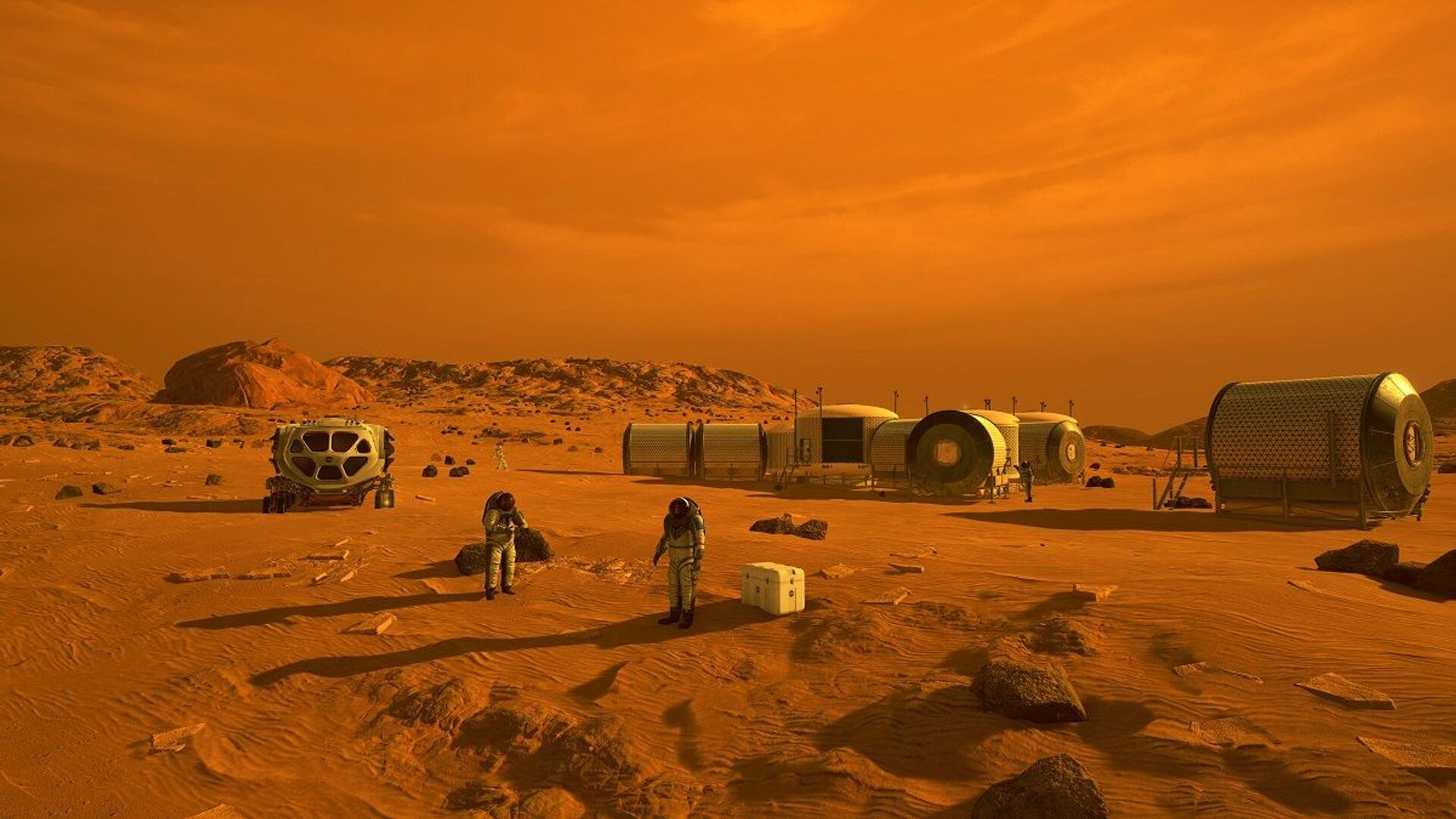https://sputnikglobe.com/20211227/they-are-going-to-eat-each-other-scientists-reveal-what-horrors-could-befall-planetary-colonies-1091843349.html
'They Are Going to Eat Each Other': Scientists Reveal What Horrors Could Befall Planetary Colonies
'They Are Going to Eat Each Other': Scientists Reveal What Horrors Could Befall Planetary Colonies
Sputnik International
One of the scientists noted, however, that humanity settling on other planets may be a good idea since it could serve as an "insurance policy" against... 27.12.2021, Sputnik International
2021-12-27T18:16+0000
2021-12-27T18:16+0000
2021-12-27T18:16+0000
science & tech
food
technology
planets
colonization
https://cdn1.img.sputnikglobe.com/img/07e5/04/01/1082510466_71:0:1271:675_1920x0_80_0_0_4603b05104ef4304d83648730e674340.jpg
Future human attempts to establish outposts on other planets should be well thought out in terms of how the populations of these distant worlds are going to sustain themselves, lest things go horribly wrong, Metro suggests.Two scientists – a professor of astrobiology at Edinburgh University named Charles Cockell and Dr Cameron Smith, anthropologist from Portland State University – told the media outlet that, before trying to colonise more remote worlds, humans should first go for “tester colonies” on the Moon or on Mars, which could be resupplied from Earth with relative ease if needed.Factors that may pose a dire threat to such planetary outposts that would be unable to receive help from Earth on a short notice include food shortages, disease, and failure to become self-sufficient.He pointed to the fate of the disastrous 19th century Franklin expedition, whose ships were “the most sophisticated pieces of technology available at that time", and who had tinned food, which also was a "new technology" back then – and yet that expedition ended up getting "lost, stranded" and eventually "degenerating into cannibalism".His concern was shared by Smith, who said that one of the first things a planetary outpost would have to do is "establish a really good farming system and put in a lot of stored food".He also highlighted the risk of disease, and advocated for an as yet hypothetical planetary colony population to be distributed between self-sustaining settlements that could be quarantined if things go south.Meanwhile, Prof. Cockell also suggested that humanity settling on other planets may be a sensible thing as it could serve as an "insurance policy" against extinction, and joked that the lack of a "space programme" became a major problem for dinosaurs at a certain point in history.
https://sputnikglobe.com/20211016/jupiter-like-planet-orbiting-dead-star-offers-glimpse-into-future-of-our-solar-system-1089961775.html
Sputnik International
feedback@sputniknews.com
+74956456601
MIA „Rossiya Segodnya“
2021
News
en_EN
Sputnik International
feedback@sputniknews.com
+74956456601
MIA „Rossiya Segodnya“
Sputnik International
feedback@sputniknews.com
+74956456601
MIA „Rossiya Segodnya“
science & tech, food, technology, planets, colonization
science & tech, food, technology, planets, colonization
'They Are Going to Eat Each Other': Scientists Reveal What Horrors Could Befall Planetary Colonies
One of the scientists noted, however, that humanity settling on other planets may be a good idea since it could serve as an "insurance policy" against extinction.
Future human attempts to establish outposts on other planets should be well thought out in terms of how the populations of these distant worlds are going to sustain themselves, lest things go horribly wrong, Metro suggests.
Two scientists – a professor of astrobiology at Edinburgh University named Charles Cockell and Dr Cameron Smith, anthropologist from Portland State University – told the media outlet that, before trying to colonise more remote worlds, humans should first go for “tester colonies” on the Moon or on Mars, which could be resupplied from Earth with relative ease if needed.
Factors that may pose a dire threat to such planetary outposts that would be unable to receive help from Earth on a short notice include food shortages, disease, and failure to become self-sufficient.
"The systems have to be really reliable and that’s why they need to be tested before", Cockell remarked.

16 October 2021, 01:49 GMT
He pointed to the fate of the disastrous 19th century Franklin expedition, whose ships were “the most sophisticated pieces of technology available at that time", and who had tinned food, which also was a "new technology" back then – and yet that expedition ended up getting "lost, stranded" and eventually "degenerating into cannibalism".
"So even with the best technology, isolated human communities can degenerate very quickly", he explained. "If you put a group of people on Callisto, things start going wrong and the plant growth module breaks down, they are going to eat each other if there is no other way to survive".
His concern was shared by Smith, who said that one of the first things a planetary outpost would have to do is "establish a really good farming system and put in a lot of stored food".
He also highlighted the risk of disease, and advocated for an as yet hypothetical planetary colony population to be distributed between self-sustaining settlements that could be quarantined if things go south.
Meanwhile, Prof. Cockell also suggested that humanity settling on other planets may be a sensible thing as it could serve as an "insurance policy" against extinction, and joked that the lack of a "space programme" became a major problem for dinosaurs at a certain point in history.


